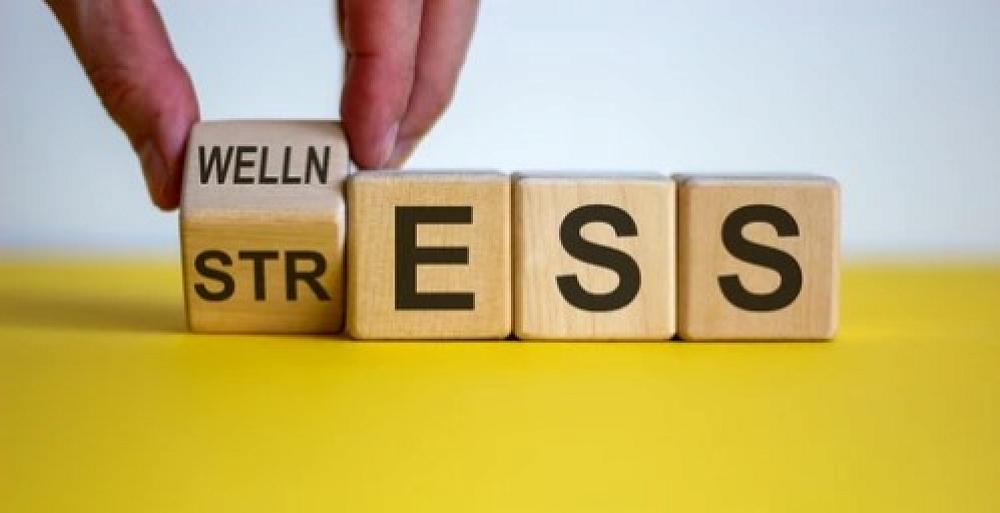
Positive Education
Stress. What is it? Stress is a normal response to challenges, pressure and life’s changes. It’s a mind and body signal that helps you get ready for what’s ahead.
How does stress work? If your brain detects a threat to your safety, your body responds with an instant burst of stress hormones. As a result, you will become more alert. This means, your eyes open wide, your heartbeat and breathing speed up and your heart pumps more oxygen to muscles for extra strength and speed.
Your body’s stress response is there to protect you from danger/threat. It helps you react quickly, fight hard or run fast if you need to. That’s why stress is also called the fight, flight and freeze response.
Everyday Stress – Most of the time, the things that cause us stress aren’t dangerous. Often, stress is caused by everyday things, like taking a test, public speaking, awkward situations or having too much to do.
These things cause emotional stress. However, your body responds to emotional stress the same way it responds to a safety threat – it makes stress hormones.
Recognise the signs of stress – Signs of stress in teenagers can show up in several ways. They include:
· Irritability and anger: Teens don’t always have the words to describe how they are feeling and sometimes tension bubbles over into a bad mood. Stressed out teenagers might be more short-tempered or argumentative than normal.
· Changes in behaviour: A once active teen now doesn’t want to leave the house. Sudden changes can be a sign that stress levels are high.
· Trouble sleeping: A teen might complain of feeling tired all the time, sleep more than usual, or have trouble falling asleep at night.
· Neglecting responsibilities: If a teen suddenly drops the ball on homework, forgets obligations, or starts procrastinating more than usual, stress might be a factor.
· Eating changes: Eating too much or too little can both be reactions to stress.
· Getting sick more often: Stress often shows up as physical symptoms. Teens who feel stress often report headaches or stomach aches and may break out in acne or eczema.
Stress management for teens – Facing stress is a fact of life for children, teens and adults. The following strategies in teens can help keep stress under control.
· Sleep well: Sleep is essential for physical and emotional well-being. Experts recommend teens get at least 8-10 hours a night. Sleep needs to be a priority to keep stress in check. Limit screen use at night and try to wind down an hour before bed such as reading, listening to music or taking a bath/shower.
· Exercise: Physical activity is an essential stress reliever. If you’re not involved in a sport, take your dog for a walk around the neighbourhood, go for a bike ride or play ball at the park with a friend. Aim for 30 minutes of exercise per day.
· Talk it out: Talking about stressful situations with a trusted adult can help teens put things in perspective and find solutions.
· Food and water: Make sure you have enough to eat and drink throughout the day to keep your energy levels up.
· Make time for fun – and quiet: Adolescents need time to do what brings them joy such as music, art or even hanging out with your pets!
· Get outside: Spending time in nature is an effective way to relieve stress and improve overall well-being. These include beaches, bush walks/tramping or going to your local garden.
· Write about it: Journaling can help reduce mental distress by expressing how you think and feel rather than holding onto these feelings in your body and mind.
· Learn mindfulness: Strategies such as breathing, muscle tension and the five senses can bring you in the present moment, therefore reducing stress and tension.
· Give: Your time, presence, words.
· Keep learning: Embrace new experiences, see opportunities and surprise yourself.
When you manage the situation, you start to feel relief from your stress. Your stress hormones ease up and the ‘butterfly’ feelings will start to fade. Your heartbeat slows down to its normal pace. Your whole body starts to go back to its non-stressed state. You can help this process when you learn and practice ways to manage your stress.
What if stress is too much to handle? Most of the time, everyday stress comes from challenges you can face and deal with. But if your stress feels too strong, happens too often or feels like more than you can handle, talk to a trusted adult or the school counsellor to get help and support. You could also call the following helplines:
- Youthline: 24/7 free phone 0800 37 66 33, free text 234, email: talk@youthline.co.nz or webchat
- 1737 – National helpline 24/7. Free text or call to 1737 to speak with a trained counsellor
- What’s up – Free phone 0800 942 8787 - phone counselling is available Monday-Sunday 11am-11pm
